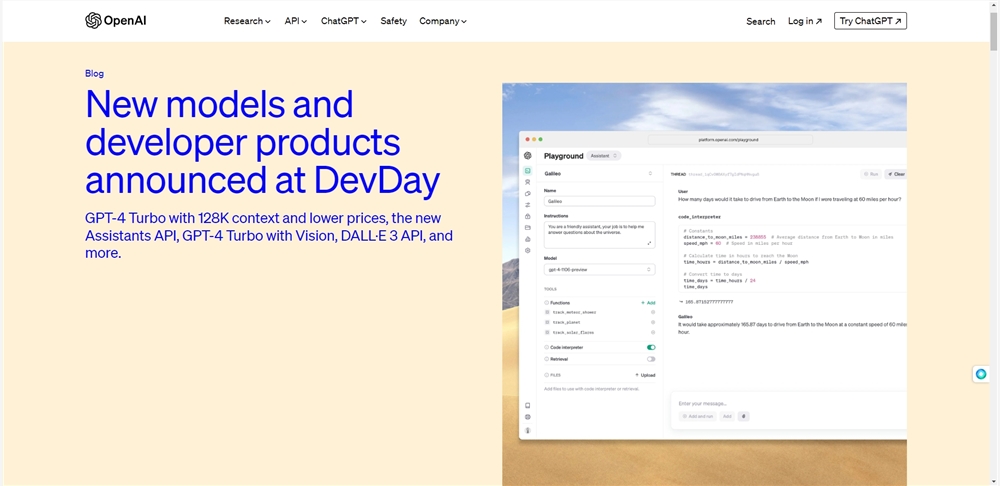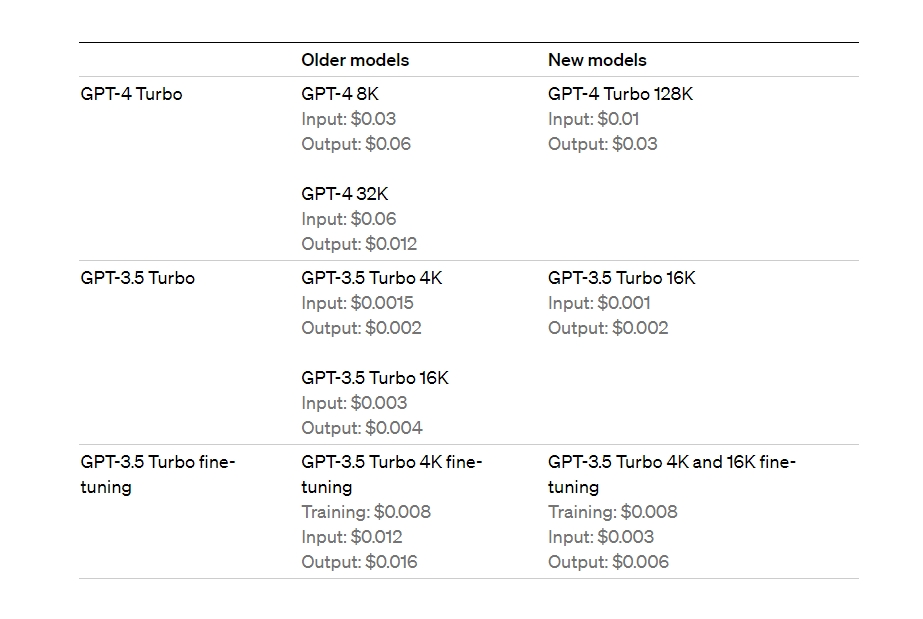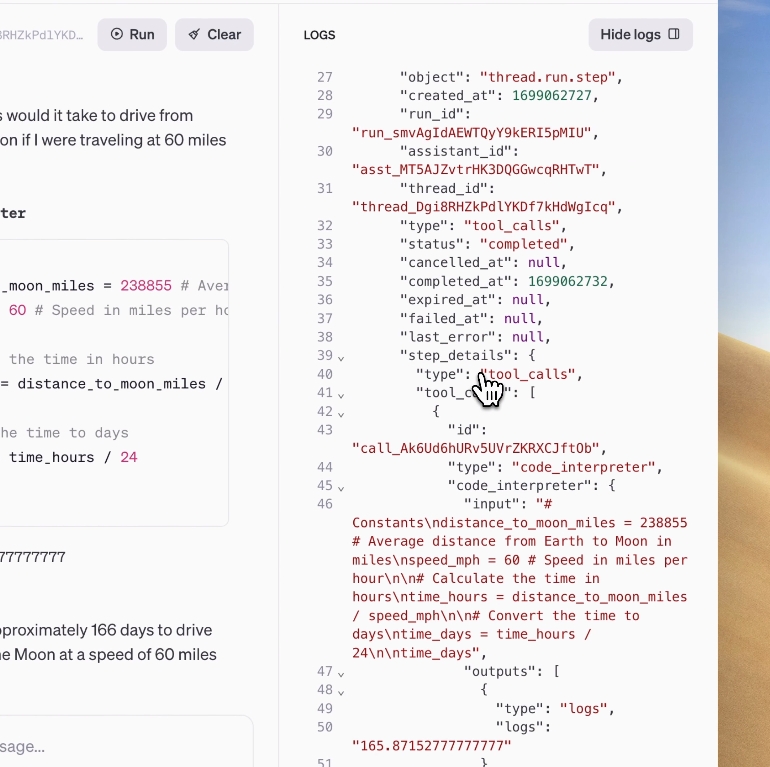OpenAI Holds First Developer Conference: Launches GPT-4 Turbo
-
At OpenAI's inaugural developer conference, DevDay, OpenAI released numerous new models and developer products, primarily including the following:

GPT-4 Turbo Model: This is the next-generation model of GPT-4, more powerful and cheaper than previous versions, supporting a 128K context window. It can accommodate the equivalent of 300 pages of text in a single prompt. Compared to GPT-4, GPT-4 Turbo reduces input token costs by 3 times and output token costs by 2 times, with the knowledge base updated to April 2023.

Function Calling Updates: Multiple functions can now be called in a single message, reducing the number of interactions with the model. Additionally, GPT-4 Turbo more accurately returns the correct function parameters.
Improved Instruction Following and JSON Mode: GPT-4Turbo performs better at following instructions and supports JSON mode, enabling the generation of valid JSON objects.
GPT-3.5Turbo Update: A new version of GPT-3.5Turbo has been released, featuring a 16K context window, improved instruction following, JSON mode, and parallel function calling.
Assistants API: The Assistants API has been introduced to help developers build agent-like experiences in their applications. This API includes new features like Code Interpreter and Retrieval, along with function calling support, making it easier to develop high-quality AI applications.

New Modality API: GPT-4Turbo now supports images as input, allowing for image descriptions, detailed analysis of real-world images, and reading documents with charts.
DALL・E3 API: Developers can integrate DALL・E3 into their applications using the Images API for automated image and design generation.
Text-to-Speech (TTS) API: The new TTS API allows generating human-quality speech from text.
Additionally, OpenAI has released experimental access to GPT-4 fine-tuning, custom model programs, lower prices, and higher usage limits. The company also introduced copyright protection measures, offering legal defense and covering related costs. Other releases include open-source projects like Whisper v3 and Consistency Decoder.
Notably, OpenAI has launched a new customizable version of ChatGPT called GPTs. Users can create their own GPTs tailored to specific needs and purposes, such as learning rules, educating children, or designing stickers, and share them with others. Creating GPTs is simple and requires no programming knowledge. These GPTs can also connect to third-party APIs for real-world interactions.
OpenAI also prioritizes user privacy and security. User conversation data is not shared with creators, and users have control over whether their data is sent to third-party APIs. OpenAI has also strengthened safety reviews for GPTs, prohibiting the sharing of harmful content.
Currently, Plus and Enterprise users can begin creating GPTs this week. Later this month, OpenAI will also launch the GPT Store, enabling people to showcase their GPTs and monetize them.
